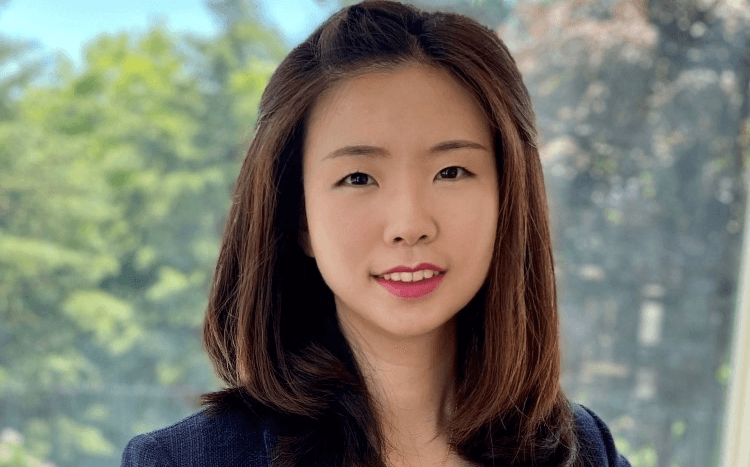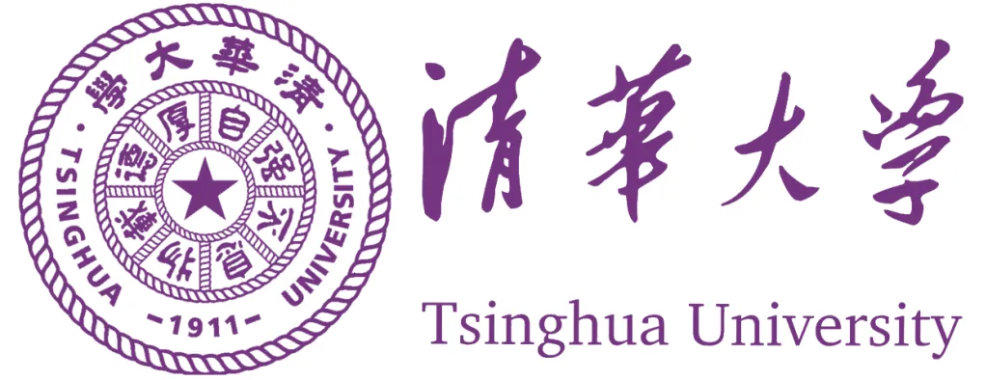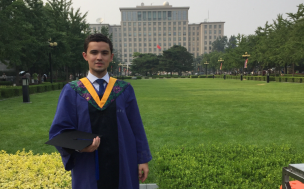This is a path that many MBA students dream about, and Angel is living proof that this kind of career is possible with a lot of determination.
Find out Angel’s secrets to success and how her MBA from Tsinghua University School of Economics and Management (Tsinghua SEM) helped her gain the relevant skills and knowledge.
Moving from Canada to China
Angel Cheng spent three years working in Toronto, Canada as a senior subject matter expert (SME) for financial derivatives valuation. With an already successful career, she knew that there was still more of the business world that she wanted to experience.
“I thought for a long time about whether to study for an MBA,” she says.
“I knew I wanted to accelerate my entrepreneurial attitude and problem solving skills, which would allow me to conquer the challenges in the dynamic business world. These are areas that an MBA could help me with."
When embarking upon an MBA, her initial career dream was to get into mergers and acquisitions (M&A).
She knew that learning about entrepreneurship and innovation would be necessary to change her career.
Pursuing a Global MBA in China
With her sights firmly set on pursuing a global career path, Angel began her search for an MBA that could help her navigate this path.
Having Chinese roots herself, she was attracted to the Tsinghua Global MBA program due to the potential it offered to create a global network in the East and West.
The Tsinghua Global MBA is formed in collaboration with MIT Sloan School of Economics and Management (MIT Sloan), with classes taught by professors from both institutions. Additionally, Tsinghua Global MBA students have the option to complement their MBA degree by applying for a science-based business master's program at MIT, which is called the Master of Science in Management Studies (MSMS).
Angel says that a strong motivation for joining the Tsinghua Global MBA was that it would allow her to gain a dual degree from two world-leading business schools in China and the US—Tsinghua SEM and MIT Sloan.
"The combination of an MBA and the MSMS would enable me to enhance my critical thinking and data-driven skills while gaining exposure to professors from two top institutions," she adds.
She also states that she was attracted to the diverse nature of the Tsinghua Global MBA, explaining that gaining knowledge from an MBA program is one of the most valuable parts of the business school experience, however, knowledge should not be limited to learning from textbooks.
“I go by the 20/80 rule,” she says, “20% is the knowledge you gain from textbooks and 80% is what you learn alongside and with your colleagues and peers.”
"The perspective of peers and professors and how people think about things, such as their mindset, all can catalyze knowledge," she says.
The Tsinghua Global MBA lives up to its name, with students in the cohort coming from many different countries and regions.
“Its international nature made it distinct from other MBA programs in China, while still providing exposure to the domestic market,” she says.
The Tsinghua MBA combines global business courses such as the McKinsey Global Leadership course and Innovation and Entrepreneurship: Insights from Silicon Valley with China-focused business courses such as the Chinese Economy in the World.
“One of the best aspects about the program is that we all want to help each other and offer insight into different career industries that we’ve experienced,” she says.
The Tsinghua Global MBA alumni network boasts over 14,000 members representing more than 50 nationalities. There are Tsinghua international alumni clubs scattered across North America, Europe, and Asia.
Gaining the right experience to switch careers
The Tsinghua Global MBA has a strong focus on experiential learning, which is exactly what Angel was looking for.
During the 21-month program, she participated in the Integrated Practice Project (IPP), which provided a chance to work with a local company in Beijing.
Angel also worked on a global strategic business plan with world leading tech company Lenovo, helping the company identify the future trends of its products post-Covid and opportunities for growth.
She also found value in the entrepreneurship and strategy courses, leveraging Tsinghua and MIT professors’ knowledge of business perspectives from across the US and China.
After speaking with a career coach at Tsinghua SEM, Angel began to realize she had an interest in consulting.
With an enhanced data driven mindset and business acumen gained from her Tsinghua Global MBA in China and MSMS studies at MIT in the US, as well as a broadened network across both countries, Angel landed a role at FTI Consulting in New York City.
Her role focuses on commercial business. She helps clients who want to complete mergers and acquisitions, learning how markets are behaving, considering the comparative landscape, and providing a market assessment to capture the opportunities.
Since her career in consulting involves a lot of interaction with clients, she admits that her personality has changed considerably since before her MBA.
“I used to be introverted but my MBA helped me to become extroverted—I love talking to people.”
For others wanting to pursue a similar career path, Angel recommends becoming a great problem-solver, being comfortable with an intense workload, and being always ready to take on new challenges.
“My studies in China and the US gave me the confidence, skills, and opportunity to transition into a career in consulting,” she concludes.








